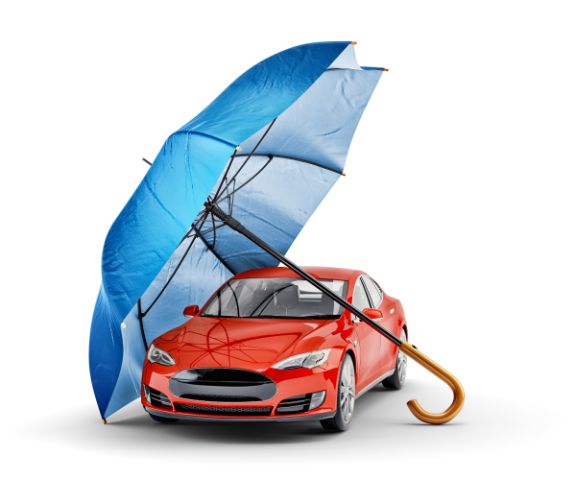You should immediately inform your insurer about these car modifications
You should immediately inform your insurer about these car modifications
Published on November 10, 2021. EST READ TIME: 3 minutes

Car modification helps in making your ride stand apart from the rest of the vehicles. It makes your vehicle vary, both in terms of appearance and performance, from the generic stock vehicles manufactured by the same manufacturers.Modifications to your car will severely affect your car insurance premium if you have a Comprehensive Car Insurance policy. If you have purchased a basic Third-party Liability policy, aesthetic changes to your car will not have an impact on its insurance premium, as this policy doesn’t cover damages to your car.
Types of Car Modifications
Your car’s insurance premium will change depending upon the extent of modifications made to your car. People usually go for the following car modifications.
- Changes to the engine: The engine is the heart of the car. Any alteration made to it will affect the power and speed.
- Braking and suspension systems: These two are vital features related to a car’s safety. Changes to these systems must be informed to the insurer.
- Wheel change: An upgrade will make your car look swankier and increase its value, which will increase the premium too.
- Car interior: You must notify your car insurance provider if you want to change the inside of the vehicle, including but not limited to the steering wheel, pedals, sound system, seats, and so on. It will have an impact on the car's insurance cost.
- Paintwork: Changing the colour of your car's paint may radically alter its appearance. Adding complicated racing designs and eye-catching patterns, in particular, may drastically transform the appearance of your vehicle. This may appear to be one of the most innocuous alterations you can make to your vehicle, but it also necessitates notifying your four-wheeler insurance provider.
- Alterations made for sports or adventure purpose: Cars are often modified for races, moto-cross contests, cross-country expeditions, wildlife trips, etc. these changes should also be informed to the insurer.
- Body kits: Body kits are extra body panels that are installed on a vehicle. It changes the shape, size, and appearance of the vehicle. Body kits might consist of wheel fenders, hoods, side skirts, front and rear bumpers, grilles, roof top vents, and spoilers. Although body kits usually change the physical appearance of the cars, they might also affect the performance by making alterations to the aerodynamics and the weight of the car.
- Air conditioning: Air conditioning is a very common functional modification.
- Car phone: The car phone offers the driver, the liberty of using his/her phone while driving. The driver can make or receive phone calls without even touching the phone. It has become even easier to use a car phone these days as most of the modern infotainment systems in cars now offer Bluetooth compatibility which helps them connect their phones to the car’s media system directly.
- Parking sensors: Parking a car can be a tricky job, especially in tight corners. Parking sensors make the whole process easier. Parking sensors can guide the driver while parking by providing information regarding obstacles that are in the way. Many cars offer parking sensors as a standard in-built feature these days. But, if your car doesn’t have one, it is definitely a good modification to be considered.
How Modifications Affect Insurance Premiums?
Insurance companies provide a cover from risk and damages to your car. When you modify a car, it may result in increased or decreased chances of risk to the car. Hence, the insurance premium on your car may also rise or fall depending upon the modifications.
For example, if you install a turbocharger to your naturally aspirated engine, it may increase the speed. Which means higher chances of risk or accident and hence an increase in the insurance premium. Whereas, installing safety devices like parking sensors may decrease the cost of premium as it reduces the risk of collision while reversing the car.
Any modifications you make to your car affect the amount of car insuranceyou pay. Certain improvements, on the other hand, have no effect on the premium if they are anticipated to reduce the likelihood of an accident or theft. For example, insurance companies do not consider a parking sensor to be a modification because it protects the vehicle from harm caused by reverse parking.
Disclaimer: The above information is for illustrative purposes only. For more details, please refer to policy wordings and prospectus before concluding the sales.
RELATED ARTICLES
How Will Car Modification Affect Your Insurance Policy?
A guide to filing own damage claim in case you meet with an accident
My address has changed. Does my car insurance company need to know this?










 Health Insurance
Health Insurance  Travel Insurance
Travel Insurance  Car Insurance
Car Insurance  Cyber Insurance
Cyber Insurance  Critical Illness Insurance
Critical Illness Insurance
 Pet Insurance
Pet Insurance
 Bike/Two Wheeler Insurance
Bike/Two Wheeler Insurance  Home Insurance
Home Insurance  Third Party Vehicle Ins.
Third Party Vehicle Ins.  Tractor Insurance
Tractor Insurance  Goods Carrying Vehicle Ins.
Goods Carrying Vehicle Ins.  Passenger Carrying Vehicle Ins.
Passenger Carrying Vehicle Ins.  Compulsory Personal Accident Insurance
Compulsory Personal Accident Insurance  Travel Insurance
Travel Insurance  Rural
Rural 











